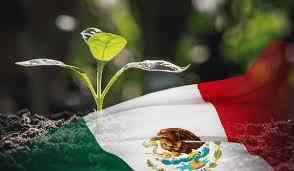Mexico’s Bioinputs Market Growth and Regulatory Gap
Mexico’s bioinputs market is experiencing robust growth, yet the absence of clear regulatory guidelines risks undermining product quality, R&D incentives, and broader adoption among farmers.
Defining Bioinputs and Their Benefits
According to the FAO, agricultural bioinputs are products of plant, animal, or microbial origin capable of enhancing crop productivity, quality, or health; they reduce dependence on synthetic agrochemicals, lower input costs amid volatile prices, cut greenhouse gas emissions and pollution, increase biodiversity, and boost system resilience to climate change.
Government and Institutional Collaboration to Define Framework
The workshop “Exchange: Toward the Construction of a Regulatory Framework for Bioinputs in Mexico,” convened by the Ministry of Agriculture and Rural Development (SADER), FAO Mexico, and the World Bank, brought together federal and state officials, producers, developers, and researchers to chart a regulatory roadmap.
Public-Private Innovation: Biofábrica Siglo XXI and FIRA’s Validation Studies
Established in 2003 under a UNAM technology license, Biofábrica Siglo XXI S.A. de C.V. is a leading Mexican agribiotech firm based in Xochitepec, Morelos, with 51–200 employees, specializing in biofertilizers and microbial-based crop inputs . FIRA (Fideicomisos Instituidos en Relación con la Agricultura), a public trust system created in 1954 under SHCP and the Bank of Mexico as fiduciary, operates 143 offices and five Technological Development Centers to provide credit, guarantees, and technical assistance to the agribusiness sector. During the 2024–25 sugarcane harvest at FIRA’s Tezoyuca Center, a 30% reduction in chemical fertilizers paired with Siglo XXI’s biofertilizers lifted yields from 95 to 121 t/ha, cut costs by MX$2,400 (US $121.63), improved plant health by 70%, and drove profitability 78% above full-chemical regimes. Over five years, FIRA has assessed bioinputs across maize, wheat, berries, agave, citrus, and grasses, and will soon launch an 80% financing program to scale biofertilizer adoption.
Streamlining Registration: Industry Calls for COFEPRIS Reform
Stakeholders highlight lengthy COFEPRIS registration timelines—from up to five years for conventional agrochemicals to 10–12 months for low-toxicity biopesticides—urging a risk-based, fast-track approach to align with global best practices and reduce barriers to market entry.
Financial and Market Development Initiatives
“In the face of market volatility—80% of which stems from fertilizer imports—we must pursue both food sovereignty and sovereignty in sustainable inputs production,” said Marcel Morales, Director of Biofábrica Siglo XXI . Diego Arias, Country Manager for Mexico at the World Bank Group—an international development bank headquartered in Washington, D.C.—emphasized that a clear, accessible framework will accelerate adoption, lower costs, and strengthen national food security.
Global Market Outlook and Opportunities
The global bioinputs market is expected to double from US $10 billion to US $20 billion by 2030, with Latin America posting 15% annual growth. In Mexico, projections forecast a rise from US $634 million to US $2 billion by decade’s end, underscoring the sector’s potential for innovation, investment, and sustainable impact












